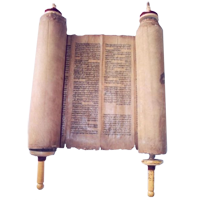- Montreal, Canada
- don@saintesecritures.org

Chapter 2 24 For considering the infinite number, and the difficulty which they find that desire to look into the narrations of the story, for the variety of the matter,25 We have been careful, that they that will read may have delight, and that they that are desirous to commit to memory might have ease, and that all into whose hands it comes might have profit.26 Therefore to us, that have taken upon us this painful labour of abridging, it was not easy, but a matter of sweat and watching;27 Even as it is no ease unto him that prepareth a banquet, and seeketh the benefit of others: yet for the pleasuring of many we will undertake gladly this great pains;28 Leaving to the author the exact handling of every particular, and labouring to follow the rules of an abridgement.29 For as the master builder of a new house must care for the whole building; but he that undertaketh to set it out, and paint it, must seek out fit things for the adorning thereof: even so I think it is with us.30 To stand upon every point, and go over things at large, and to be curious in particulars, belongeth to the first author of the story:31 But to use brevity, and avoid much labouring of the work, is to be granted to him that will make an abridgment.32 Here then will we begin the story: only adding thus much to that which hath been said, that it is a foolish thing to make a long prologue, and to be short in the story itself.
Chapter 3 1 Now when the holy city was inhabited with all peace, and the laws were kept very well, because of the godliness of Onias the high priest, and his hatred of wickedness,2 It came to pass that even the kings themselves did honour the place, and magnify the temple with their best gifts;3 Insomuch that Seleucus of Asia of his own revenues bare all the costs belonging to the service of the sacrifices.4 But one Simon of the tribe of Benjamin, who was made governor of the temple, fell out with the high priest about disorder in the city.5 And when he could not overcome Onias, he gat him to Apollonius the son of Thraseas, who then was governor of Celosyria and Phenice,6 And told him that the treasury in Jerusalem was full of infinite sums of money, so that the multitude of their riches, which did not pertain to the account of the sacrifices, was innumerable, and that it was possible to bring all into the king's hand.7 Now when Apollonius came to the king, and had shewed him of the money whereof he was told, the king chose out Heliodorus his treasurer, and sent him with a commandment to bring him the foresaid money.8 So forthwith Heliodorus took his journey; under a colour of visiting the cities of Celosyria and Phenice, but indeed to fulfil the king's purpose.9 And when he was come to Jerusalem, and had been courteously received of the high priest of the city, he told him what intelligence was given of the money, and declared wherefore he came, and asked if these things were so indeed.10 Then the high priest told him that there was such money laid up for the relief of widows and fatherless children:





